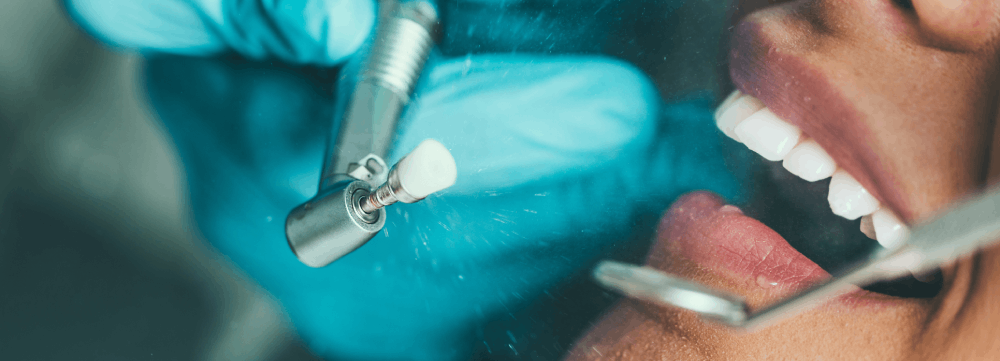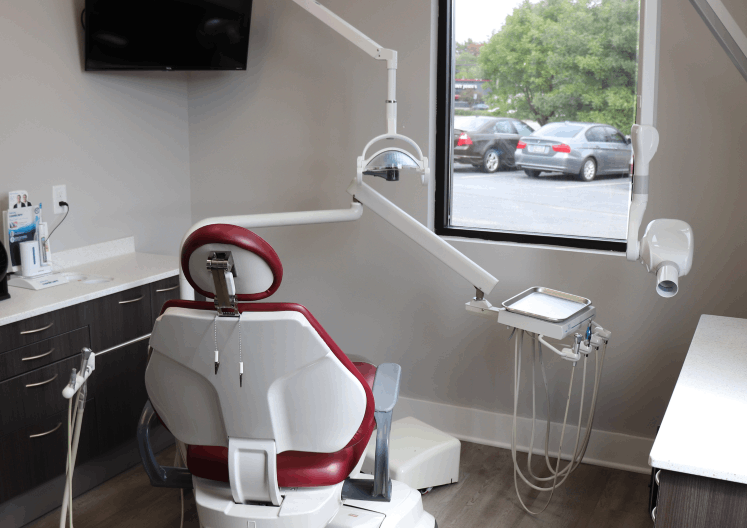Oral Hygiene at Dental World of Marietta
Disclaimer: Not medical or professional advice. Always seek the advice of your physicia.

Bacteria constitute about 90% of dental deposits being one of the causes of dental diseases. Therefore, dentists at Dental World of Marietta recommend that patients undergo professional oral hygiene 2 times a year. This is the easiest and most effective way to keep your teeth healthy!
Oral Hygiene: Сalculus Removal
At home, it is very difficult to remove bacterial plaque from 5 surfaces of each tooth. Gradually, it accumulates in the interdental spaces, the gingival area and on the back of the teeth. The longer plaque accumulates, the more its structure changes. It becomes dense. Dentists call this hard plaque calculus.
Removal of calculus is included in the professional hygiene procedure.
How Long does Professional Oral Hygiene Take?
By dental standards, hygiene takes between 45 minutes and an hour. But much depends on the condition of the patient's teeth. If you have not attended the hygiene before or more than a year has passed since the last visit, the procedure may take longer. In this case, your doctor will schedule multiple visits for you.
In addition to removing the calculus and soft plaque during the hygiene, there are 2 more stages.
- Polishing stage. From 10 to 15 minutes. During this time, the doctor manages to pay attention to each tooth and achieve the desired result.
- Fluoridation stage. Takes about 5 minutes. It is necessary to remineralize teeth and create a protective layer on the enamel. At the appointment, the doctor always takes time to discuss with the Patient recommendations for home dental hygiene, so that the effect of professional hygiene is preserved for a long time.
Preventive Dentistry at Dental World means

- painless removal of dental plaque
- protection of teeth and gums from various dental diseases
- removal of pigmentation due to food from the surface of the teeth without discoloration of the enamel
- restoration of natural teeth color in one session
- get rid of bad breath
- reducing the cost of treating carious lesions
- grinding and polishing of dental surfaces and fillings
- prevention of periodontitis
The doctors at Dental World of Marietta in Atlanta recommend carrying out professional oral hygiene, not only for preventive purposes (twice a year), but also before starting any dental treatment, installing crowns or veneers. Regular hygiene saves your budget as soon as treatment and surgery are much more expensive.
Oral Hygiene for Children and Adolescents
Children like to brush their teeth no more than adults. And they come up with many excuses to skip this boring affair. And sometimes they will clean it so that it seems that there is no difference - while the bacteria and food debris still remain on the teeth.
But it is very difficult to check how well the kid has brushed his teeth. During the visit, the doctor will stain the plaque with a special compound. This will help you identify places to focus on while doing the home hygiene.
It is undesirable for children under 14 to undergo the plaque removal using ultrasound (scaler). This threatens to damage the growth zone of the tooth or damage the structure of the enamel.
The doctor conducts cleaning and polishing of teeth using the Air-flow method. The method is excellent for removing hard and soft plaque. And is suitable for children from two years old. At the end of the appointment, the doctor will conduct a hygiene lesson for the little patient: he will show in the mirror how clean the teeth should be, tell him when and how to brush his teeth at home.
Why is Oral Hygiene Especially Important at an Early Age?
Caries eats away the teeth of children much faster than adults' teeth. There are several reasons for this:
- immunity is not yet developed enough to effectively repel bacterial attacks
- the enamel layer is too thin
- the mucous membrane is highly permeable to bacteria
The molars, which are otherwise called first molars, come through first. They are especially vulnerable because of the good conditions for plaque to appear.
Responsible attitude to deciduous teeth from the first years of life will help maintain the health of permanent teeth longer.
More Information About Oral Health
- How to Strengthen Tooth Enamel?
- Interdental Brushes vs. Floss
- How to Get Rid of Dental Plaque?
- Why Sugar is Bad for your Teeth
- 10 Facts about Cavities
- How to take Care of your Tongue to Keep your Breath Fresh
- How Diabetes Can Cause Dry Mouth Symptoms
- Why Do Teeth Darken?
- What to Do If Your Filling Falls Out

